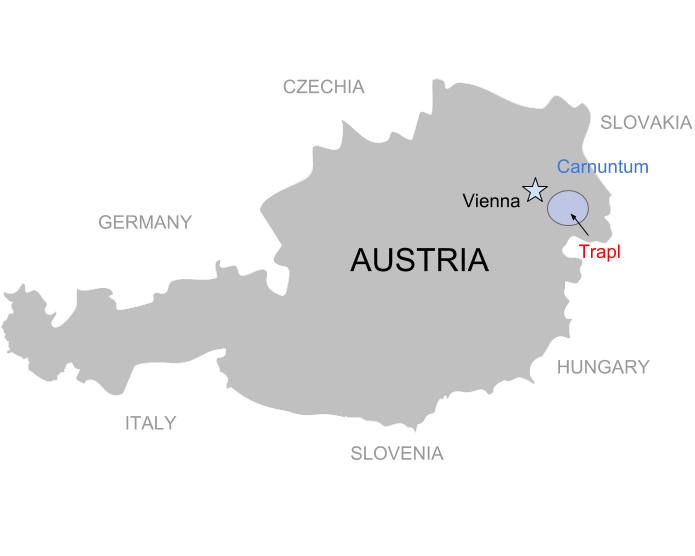2016 Trapl Sankt Laurent
Carnuntum, Austria

Johannes Trapl founded his winery in 2003 when he was just 25 years old. It was Johannes' grandfather that planted most of the family estate’s vineyards in Carnuntum, a region known at the time for big, inexpensive Zweigelt wines. After working for Cardinale winery in California, Johannes took over the responsibility of managing the small family winery with initially only half a hectare (1 acre) of vineyards and also worked for the nearby Muhr-van der Niepoort estate. Today, together with Dorli Muhr of Muhr-van der Niepoort, Johannes Trapl is co-instigator of the renaissance of Spitzerberg, a small extension of the Little Carpathians made of limestone and schist, which can produce wines with extraordinary elegance and minerality. The wine-growing region Carnuntum stretches from the eastern limits of Vienna to the border of Slovakia. The vineyards are dispersed in three hilly landscapes: the Leitha Mountains, the Arbesthaler Hills near Göttlesbrunn and the Hainburger Mountain. Heavy loam and loess soils and sandy gravelly soils dominate the slopes of the Arbesthaler Hills in Stixneusiedl. The hot summers and cold winters that characterize the Pannonian climate, the proximity of the moderating effects of the Danube River and Lake Neusiedl allow red grapes to ripen perfectly.
VINEYARDS
The vineyards have been certified organic since 2006 and the entire winery since 2010. Meanwhile, the focus is now on applying biodynamic principles in the vineyard and avoiding using mineral fertilizers. Conscientious canopy management and working with green cover allows grapes to ripen more gradually and develop more aromatic intensity. The biggest challenge is choosing the perfect time to pick grapes, which should be based on the taste of the grape, not its sugar concentration. Harvest starts rather early with the first selection of grapes, thus reducing vigor and shoot growth. In the second round, grapes don’t have that much “puppy fat” and exhibit rather cool aromas as Johannes' preferred style is freshness and liveliness.
WINE MAKING
The cellar's most striking feature is the big vats in which grapes for the premium wines are foot-trodden. This method, used for 20 tons of grapes each year, is physically exhausting but the resulting quality of the wines recompense all efforts. Fermentation occurs naturally without the addition of cultivated yeasts or enzymes. There is minimum intervention with the premium wines in the cellar to simply let them be. The wines are then given enough time to mature, in stainless steel tanks, oak casks or amphoras, before they are brought to market, which allow them to show their true potential and pedigree.
NOTES & PAIRINGS
The vineyard in Sarasdorf was planted in 2000. The soils are a mix of gravel, loess and loam. The fruits are handpicked in small crates and selected on the sorting table. 80% of the grapes are destemmed and crushed and stomped by foot. Fermented with native yeasts, they are gently pressed, then matured in 500-liter oak barrels for 14 months. No additives, no cultivated yeasts or enzymes, and no fining. Lively texture, wonderful silky balance. Good aging potential. Pairs with lamb, duck or game.
ANALYTICS & PRONUNCIATION
PRODUCER: Trapl
APPELLATION: Carnuntum
VINTAGE: 2016
GRAPE COMPOSITION: 100% Sankt Laurent
CLIMATE: Cool Continental
SOILS: gravel, loess and loam.
EXPOSURE: Southern
MACERATION & AGING: Spontaneous fermentation. Aging in large wooden barrel for 14 months
ALCOHOL: 12.5%
RESIDUAL SUGAR: 1 g/l
ACIDITY: 5.3 g/l
